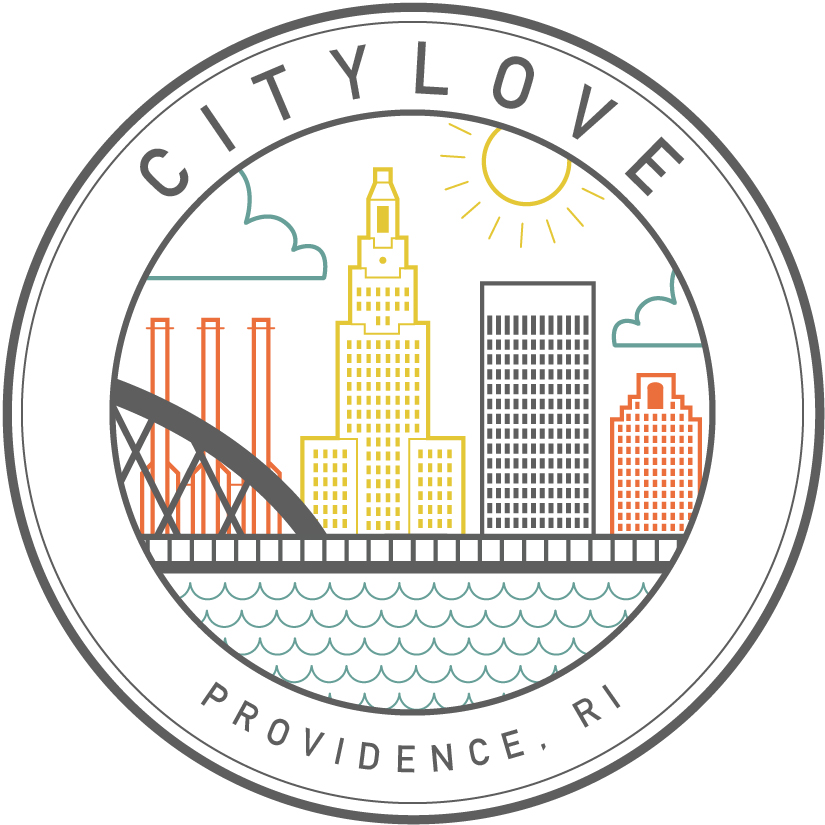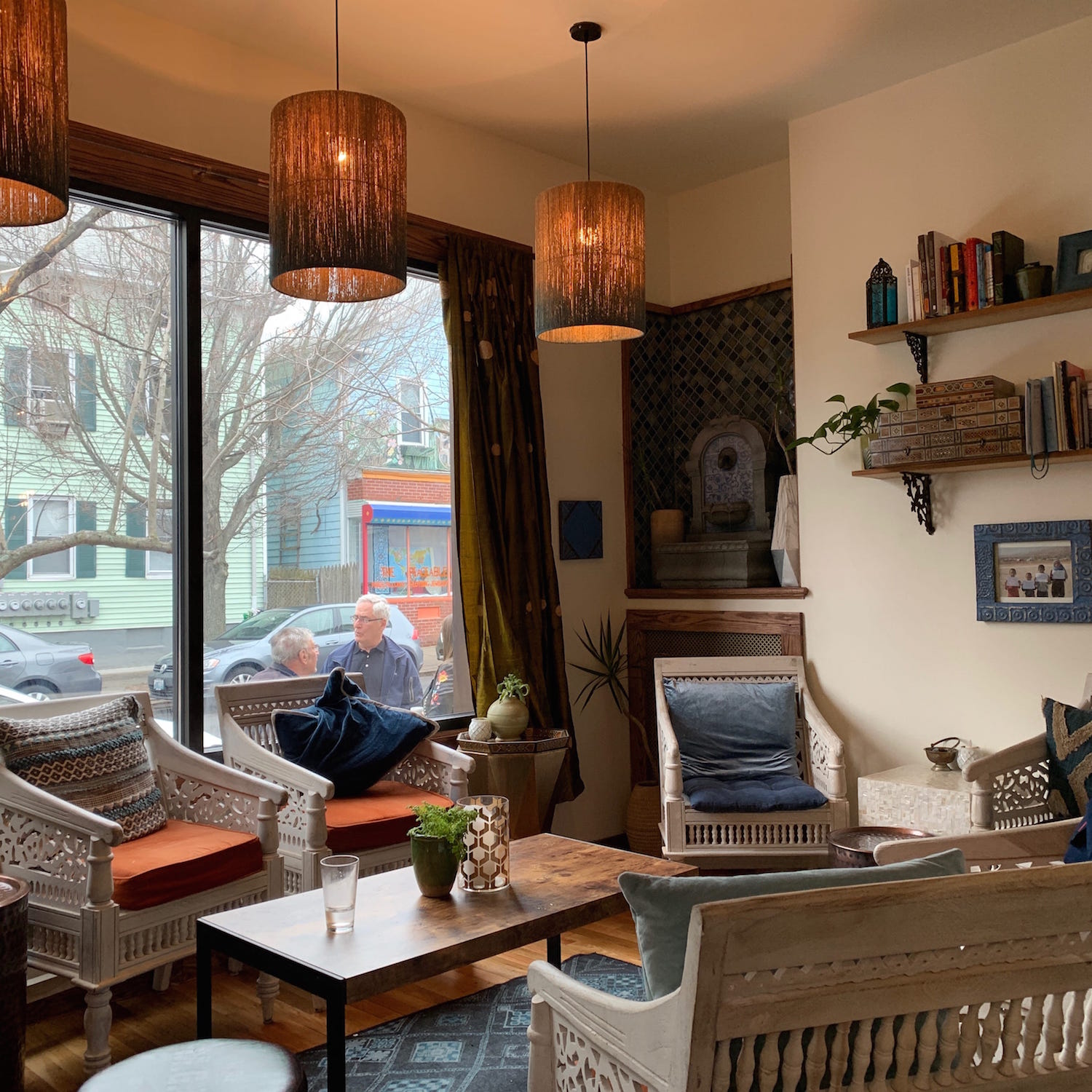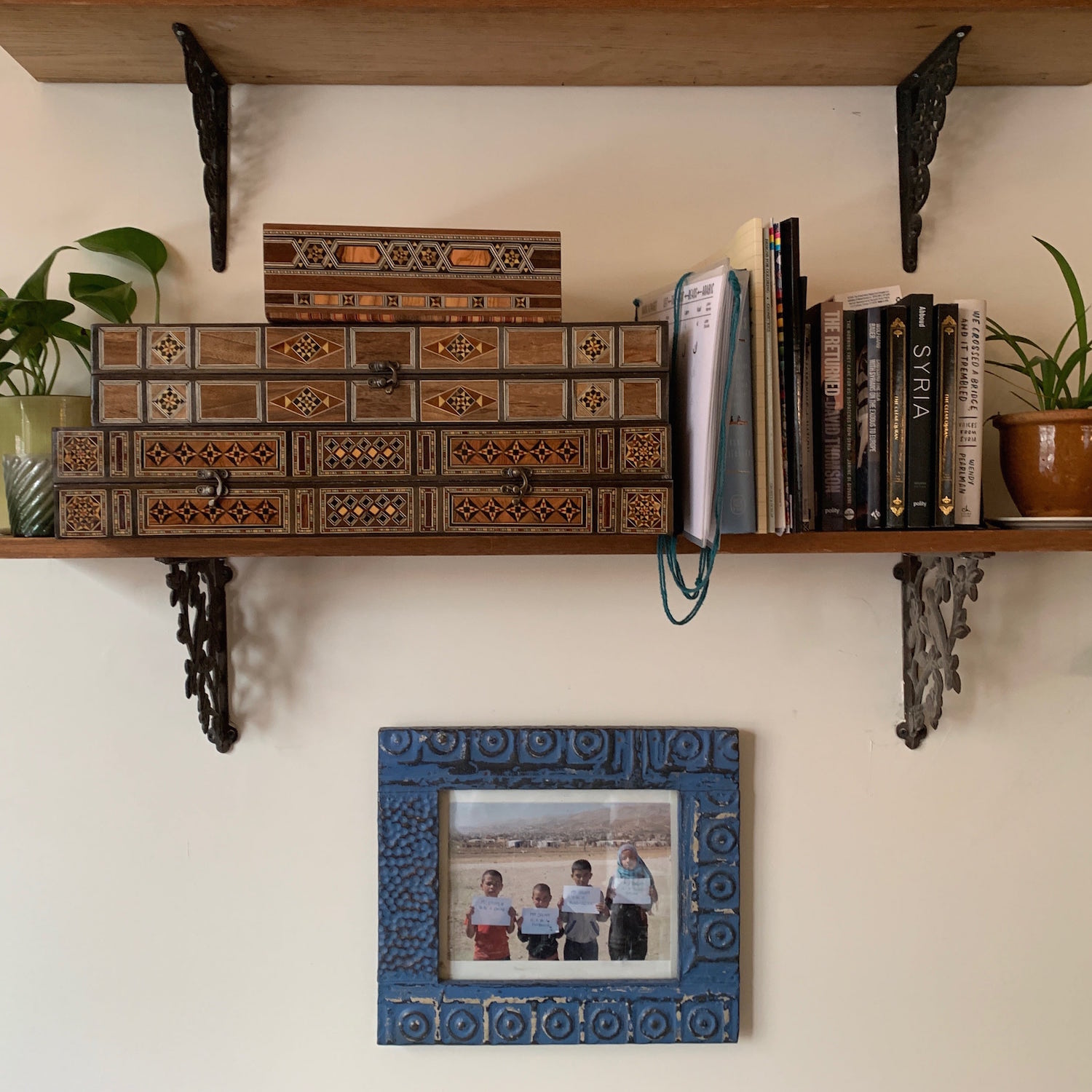Aleppo Sweets
Words by Ayisha Jackson
“This more seems like a sit-down restaurant”, my friend observed as we walked through a pair of discreet turquoise doors.
A worker greeted us by the door. “No you don’t have to sit”, he exclaimed. “You can stand, lay down, whatever you like”. He ushered us through the entrance, into a warmly lit haven of Ottoman-styled interior décor. I had lured my friend in for an afternoon of studying and writing at a “new local cafe”. She met the charismatic worker again at the bakery counter, where he continued to joke about her posture options, following up with tips and suggestions for what to order.
We were spending our afternoon at Aleppo Sweets, a self-described authentic Syrian Bakery and cafe which has recently taken up residence on Ives street. Although only open for about a month, the cafe has already received a flood of media coverage around the city. A quick Internet search on Aleppo Sweets will bring up numerous articles on the cafe and the Akhtarinis, its founders. And discussions of the new spot inevitably gravitate to elements of their journey.
The original versions of Aleppo Sweets existed in Aleppo, Syria. Youssef Akhtarini, the current shop baker, was born and raised there. And that’s where he had been living out his passion for creating baklava since the age of sixteen. In 2014, Youssef, his wife, and his five children fled to Turkey, where they registered as refugees. After two years, they resettled in Providence. During that time, Youssef received news that his bakeries had been destroyed by the war. So, rolling pin in hand, he arrived in Providence, his mind set on baking again as soon as possible. About two years later, Youssef managed to see that dream come to pass, with the gracious help of Sandy and Victor from Dorcas International. Their early investment enabled the opening of the now beloved and well-frequented cafe.
Aleppo Sweets has established quite a reputation, but not just for its food and ambiance. The cafe itself is an agent for storytelling. It’s invited the people of Providence into a larger story; one of tragedy and displacement. The Akhtarini family know first-hand what it’s like to be a part of this story. They’ve lost family members (Youssef’s sister and her children), possessions, and their home in the war. Still, the Syrian civil war history books lining the walls of the cafe’s lounge show an understanding that this is also about an entire people. It’s moving, and one cannot enter the shop to taste the sweet pistachio baklava without interacting with this reality.
The cafe itself is an agent for storytelling. It’s invited the people of Providence into a larger story; one of tragedy and displacement.
The story of Aleppo Sweets emphasizes movement towards restoration. The cafe stands as a result of the hard-work and grit of the Akhtarini family as well as the generosity and compassion of Providence community members. It represents the restoration of a baker’s joy in making baklava, and the ability to use that craft as a way to both hold onto and share his culture.
A framed photograph shows Syrian refugee children holding up signs, telling what they want to be when they grow up. Above this, the war history books sit next to Arabic language textbooks and Syrian cookbooks as a reminder that we can see elements of redemption in the midst of war. The Providence community is invited to take part in this— in enjoying a beautiful culture, and in restoring it in the lives of those who’ve been separated from their home.
“How’s the studying going, girls?”, asked the worker who greeted us at the door. We’d spent about an hour lost in the transcendent atmosphere, Arabic music softly drifting in the background. We had devoured a small cup of delicious made-to-order Turkish coffee with milk and sugar, a pot of ginger cardamom mint tea, and a serving of the infamous pistachio baklava.
We laughed as he continued his joke from earlier about studying while standing up. I glanced around the room, decorated with a variety of desert plants, golden Arabic kettles, and walls marked with calligraphy. I imagined myself in one of Youssef’s original bakeries in Syria. I hope they brought the Aleppo locals just as much joy.
Ayisha Jackson
Ayisha was born in Georgetown, Guyana and raised in the boroughs of New York City, and was brought to Providence through school at Brown University. She felt the call to missions in her senior year after learning about the importance of service and community in the faith.



